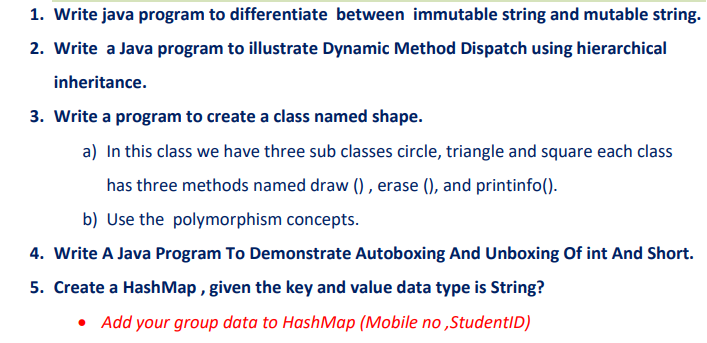Why Are Strings Immutable in Java? Comprehensive Overview for Beginners
Why Are Strings Immutable in Java? Comprehensive Overview for Beginners
Blog Article
What Is Unalterable Strings and Exactly How It Functions
In the realm of programming, comprehending the idea of unalterable strings is extremely important for creating durable and protected applications. Unalterable strings refer to strings that can not be modified after they are created, guaranteeing information honesty and predictability within the code.
The Fundamentals of Unalterable Strings
Immutable strings, as a fundamental idea in programs, are personality series that can not be altered once they are created. This suggests that once a string is appointed a worth, that value can not be changed. In languages like Python and Java, strings are unalterable items, leading to numerous ramifications in terms of memory administration and data honesty.
Among the vital benefits of immutable strings is that they give a sense of safety and security in information adjustment. Because the web content of an immutable string can not be customized, it ensures that the initial data remains intact, decreasing the risk of unintended adjustments during program implementation (Why are strings immutable in Java?). This home likewise simplifies debugging procedures, as developers can trust that as soon as a string is defined, its value will certainly not be unintentionally altered
When a brand-new string is created based on an existing one, rather than modifying the original string, the new value is stored separately. On the whole, understanding the fundamentals of immutable strings is crucial for mastering programs concepts and optimizing code efficiency.
Advantages of Unalterable Strings
Building upon the protection and performance benefits of immutable strings, their benefits reach boosting code integrity and simplifying concurrent programming jobs. By being unalterable, strings can not be modified after creation, which gets rid of the threat of unintentional modifications in the data they keep. This fundamental immutability ensures that as soon as a string is produced, its value continues to be consistent throughout the program's execution, minimizing the possibilities of pests brought on by unexpected changes.
Furthermore, immutable strings add to code dependability by making it simpler to reason regarding the state of a program. Because strings can not be changed, designers can trust that a string will constantly hold the exact same worth, simplifying debugging and upkeep initiatives. This predictability causes more dependable and secure codebases.

Implementation in Shows Languages
Within numerous programs languages, the incorporation of click over here immutable strings is a basic aspect that impacts just how information is taken care of and manipulated within code frameworks. The execution of immutable strings differs across different programs languages, with each language offering its very own mechanisms to support this principle.

In contrast, languages like C and C++ do not have built-in support for immutable strings. Programmers in these languages have to manually implement immutability by applying regulations within their code to avoid direct adjustments to string objects.
Finest Practices for Collaborating With Unalterable Strings
When dealing with immutable strings in shows languages like Java and Python, adhering to finest practices makes home certain efficient and safe data control. Among the vital best practices is to use StringBuilder or StringBuffer instead of directly adjusting strings, particularly when taking care of considerable concatenation operations. These courses offer mutable options for string adjustment, aiding to stay clear of unneeded memory appropriations and improving efficiency.
Furthermore, when working with sensitive data such as passwords or API tricks, it is essential to prevent storing them as plain message in unalterable strings. Using secure storage space mechanisms like char ranges or specialized libraries for taking care of delicate details aids alleviate safety and security risks linked with immutable strings.
Real-world Applications and Examples
Discovering functional applications of unalterable strings in various sectors exposes their considerable effect on information integrity and system dependability. In the healthcare field, unalterable strings play a critical function in guaranteeing continue reading this the safety and security and privacy of client information. By preventing unauthorized adjustments to delicate info such as clinical documents and prescriptions, unalterable strings help keep compliance with strict privacy laws like HIPAA.
Monetary establishments also take advantage of the immutable nature of strings to boost the security of customer information and deal records. Immutable strings assist prevent fraudulence and unapproved modifications to economic details, supplying a durable protection versus cyber dangers and ensuring the trust and self-confidence of customers.

Final Thought
Finally, unalterable strings are fixed and stable sequences of personalities that supply advantages such as string safety and enhanced performance in programming. They are applied in various shows languages to guarantee data stability and safety and security. Best practices for collaborating with unalterable strings consist of staying clear of direct modifications and utilizing techniques that return new string things. Real-world applications of unalterable strings consist of information file encryption, caching, and string control jobs.
Unalterable strings refer to strings that can not be changed after they are created, making sure data honesty and predictability within the code. When a brand-new string is created based on an existing one, rather than changing the original string, the new value is stored individually.In languages like Java and Python, strings are unalterable by default, indicating that when a string item is created, its value can not be changed - Why are strings immutable in Java?. Ideal methods for working with immutable strings include preventing straight modifications and using techniques that return new string things. Real-world applications of unalterable strings consist of data file encryption, caching, and string manipulation jobs
Report this page